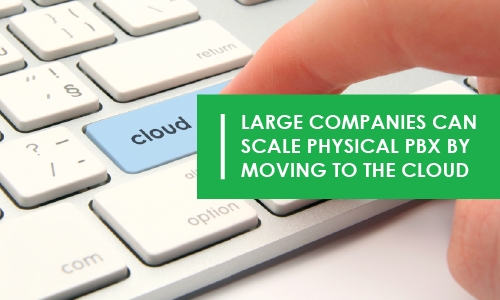
It's not often that successful companies have a nagging issue; unless they're still deploying on-premise PBX hardware.
Australia recorded its 25th year straight of gross domestic product (GDP) growth in 2015 to 2016, according to the Department of Industry, Innovation and Science. The byproduct of that accomplishment is that more businesses will undoubtedly open new locations and seek to grow, but that can be difficult with an on-premise business phone system. Luckily, organisations can get the best of both worlds by integrating a hybrid PBX strategy.
Weighing the two
Combine on-premise hardware with the cloud for greater flexibility.
As with any major business decision, the pros and cons should be laid out. Scaling a company is no simple proposition; especially if the other branch will be in a different country. Maintaining the costs of multiple physical PBX systems can be expensive, though they do provide effective security and call control that you'd have to pay extra for with a pure IP VOIP platform.
VOIP is becoming more popular because of its cost advantages, especially when scaling the organisation, but businesses can't forget about the realised loss they incur when opting for it; the PBX hardware is made redundant. Similarly, companies lose many of the administrative controls they once had with an on-premise system.
Best of both worlds
Hybrid PBX allows large companies to still maintain control over their landlines with the existing infrastructure - as well as make good use of the legacy hardware - while still receiving the same benefits VOIP offers. These include:
- Communications redundancy in the case of unexpected outage.
- Zero additional costs for employees to talk to each other no matter the location.
- Seamless control for scaling and other needs with an administrative platform hosted on the cloud.
By hosting the original PBX server at headquarters and converging the cloud, companies can continue to scale without compromising on service or call quality with customers. New branches simply connect via the cloud, while all maintenance is kept to one location. This saves on the costs of scaling a business, while also continuing to provide employees with consistent and effective tools.
 Hybrid PBX allows companies to deploy platforms that can call route to mobile devices.
Hybrid PBX allows companies to deploy platforms that can call route to mobile devices.After integrating a cloud strategy, companies can then look to improve organisational process management by deploying a platform that offers a number of useful applications, like drag-and-drop calling or mobile capability.
Don't let success be a barrier for growth. Incorporate a hybrid PBX strategy to increase return on investment for legacy hardware, all while providing employees with reliable VOIP. Contact a Fonality representative today to find out more.


